January 12, 2018
The complex relationship between productivity, technology and working anywhere
 A new report produced by Lancaster University’s Work Foundation and commissioned by Citrix, highlights the complex and often strained relationship between productivity, technology, work and the idea of working anywhere. Despite the march of digital transformation, one in four (24 percent) UK managers questioned for this report believe their organisation is not technologically ‘forward thinking’. With Britain’s productivity slowdown the largest of the G7 economies since the recession, over three in five (63 percent) of knowledge workers polled believe they are no more productive today than they were three years ago, with 17 percent even claiming to be less industrious. The paper – Productivity, technology & working anywhere – shows an undeniably positive link between correctly-implemented technology and workplace productivity. However this progress can soon by marred by poor business planning, a lack of innovation, outdated IT and low uptake of flexible working cultures. The research is supported with survey responses from 1,000 knowledge workers and 500 managerial level employees within medium and large organisations across the UK.
A new report produced by Lancaster University’s Work Foundation and commissioned by Citrix, highlights the complex and often strained relationship between productivity, technology, work and the idea of working anywhere. Despite the march of digital transformation, one in four (24 percent) UK managers questioned for this report believe their organisation is not technologically ‘forward thinking’. With Britain’s productivity slowdown the largest of the G7 economies since the recession, over three in five (63 percent) of knowledge workers polled believe they are no more productive today than they were three years ago, with 17 percent even claiming to be less industrious. The paper – Productivity, technology & working anywhere – shows an undeniably positive link between correctly-implemented technology and workplace productivity. However this progress can soon by marred by poor business planning, a lack of innovation, outdated IT and low uptake of flexible working cultures. The research is supported with survey responses from 1,000 knowledge workers and 500 managerial level employees within medium and large organisations across the UK.









 Three in 10 business professionals think most of their meetings are pointless and nearly half (48 percent) of UK business people admit to having dozed off in a meeting claims global research by Barco ClickShare. The study revealed the true extent of our shared dislike for business meetings, which many respondents believe are poorly run at best or, at worst, completely pointless. Nearly a third of respondents globally said they found less than half of their meetings to be useful, while 30 percent also said they had dozed off in a meeting before. The UK, in fact, led the way in the asleep-in-meeting stakes, with nearly half (48 percent) of all UK respondents saying they’d fallen asleep in meetings. Checking emails and social media during meetings was also extremely common and another indication of disengagement and distraction. Over 70 percent of people said they regularly checked emails during meetings, while 37 percent access social media.
Three in 10 business professionals think most of their meetings are pointless and nearly half (48 percent) of UK business people admit to having dozed off in a meeting claims global research by Barco ClickShare. The study revealed the true extent of our shared dislike for business meetings, which many respondents believe are poorly run at best or, at worst, completely pointless. Nearly a third of respondents globally said they found less than half of their meetings to be useful, while 30 percent also said they had dozed off in a meeting before. The UK, in fact, led the way in the asleep-in-meeting stakes, with nearly half (48 percent) of all UK respondents saying they’d fallen asleep in meetings. Checking emails and social media during meetings was also extremely common and another indication of disengagement and distraction. Over 70 percent of people said they regularly checked emails during meetings, while 37 percent access social media.
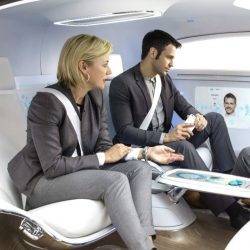








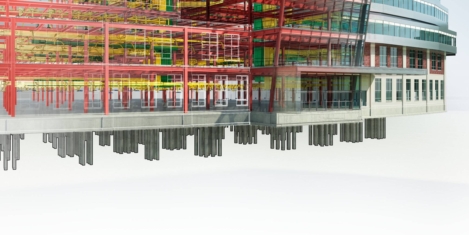
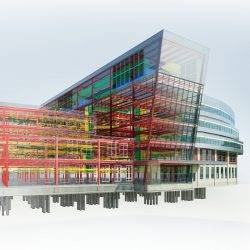

 The proportion of flexible space within occupier portfolios will continue to increase in 2018; a growing adoption of technology will redefine buildings, workplaces and portfolios; and it will be a year of decision for many businesses regarding Brexit. These are among the ‘UK Property Predictions 2018’ report from JLL which covers a range of different topics, with a particular focus on UK corporate occupiers. The report claims that traditional static portfolio concepts are being redesigned to incorporate new formats of space, co-working and a more fluid and diverse range of space options that support creativity, innovation and collaboration.
The proportion of flexible space within occupier portfolios will continue to increase in 2018; a growing adoption of technology will redefine buildings, workplaces and portfolios; and it will be a year of decision for many businesses regarding Brexit. These are among the ‘UK Property Predictions 2018’ report from JLL which covers a range of different topics, with a particular focus on UK corporate occupiers. The report claims that traditional static portfolio concepts are being redesigned to incorporate new formats of space, co-working and a more fluid and diverse range of space options that support creativity, innovation and collaboration. 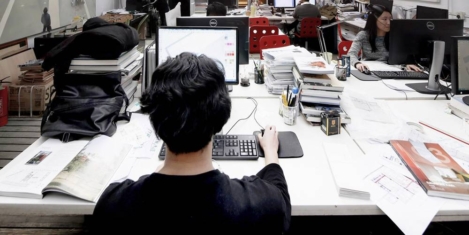
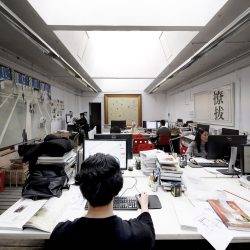









January 9, 2018
The year we discover the elemental workplace
by Neil Usher • Comment, Facilities management, Technology, Workplace, Workplace design
(more…)